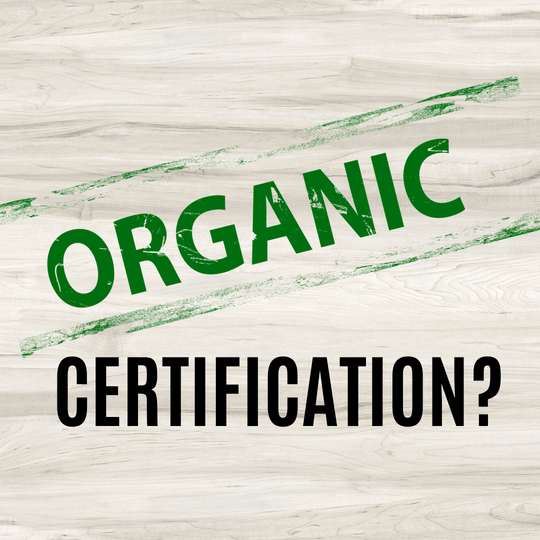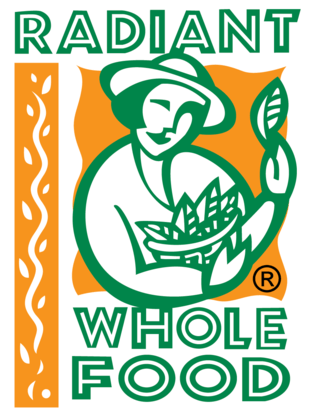
May 20 , 2020
Organic Certification? Why is it important?
How Organic Certification Works. Why It's Important to You?
The exponentially accelerating rate of change throughout the industrial world since the early 20th century has resulted in increasing alarm about the resulting effects on health and the environment. Environmentally concerned groups have been focusing their attention on the use of chemicals, hormones, antibiotics and genetically modified, altered, and irradiated food and clothing products to list but a few. This has led to an increase in awareness of the value of the organic produce both to the individual and our Ecosphere as a whole. In turn, this led to the present, ever-growing demand for organic, non-toxic products with many willing to pay a premium price for them.
Seeing such profit opportunities, this burgeoning market has been ripe for abuse with “organic” labels fraudulently slapped on produce and products that did not live up to the claims. In the 1980s, consumer and farming groups began pressuring governments all over the world to regulate organic production and establish certification standards to insure quality and consistency in products labelled “organic”.
What Are The Standards?
Before a product can be labelled as organic, specific standards must be met. These standards require farmers to use methods that maximize the health of the soil, conserve water and lessen air pollution. Though requirements somewhat varied in different countries, specific standards to certify as organic are generally as follows:
- Free of synthetic chemicals such as fertilizers, insecticides, herbicides, antibiotics, hormones and food additives.
- Animals must be fed only organically grown foods.
- Free of genetically modified organisms.
- Free from irradiation.
- Grown on farmland that has been free from prohibited substances for a given number of years like three years.
- Harvesting and processing equipment must be cleaned and sanitized.
- Require detailed production and sales records.
- Require physical separation of organic products from non-organic certified products throughout the production process to the end user.
- Require on-site inspections performed at regular intervals.
Reading the Label
After going through the rigorous process required for certification, producers are able to use the certified organic seal. There are four levels of organic product labels, defined by the percentage of organic ingredients contained in the final product.
- 100% organic, means all ingredients and production methods are certified organic.
- Organic, means that 95% or more of the ingredients and production methods are certified organic with the remaining ingredients listed on the National List of allowed ingredients.
- Made with Organic Ingredients, stated on the front or the back of the package means that at least 70% of the ingredients contained are certified organic with the remaining percentage of ingredients allowable.
What Certification Means to You.
Understanding the process of certification and the meticulous standards that must be met and maintained by producers and handlers to qualify is reassuring to know that your food is safe and healthy. You know that it is free of toxic additives, chemicals, hormones and antibiotics. When the BioGro organic label is present, you know that the higher price you're paying for organic over the non-organic counterparts is worth it and well-earned.
Look out for the organic certification label on your organic food products. The certified organic label on food products has a very real and important meaning that is backed up by stringent requirements and ongoing inspections. You can feel confident when paying the higher price for these products now, knowing exactly what you're getting.
Organic Certification is a certification process for producers of organic food and other organic agricultural products. In general, any business directly involved in food production can be certified like seed suppliers, farmers, food processors, manufacturers, retailers and restaurants.
Organic certification varies from country to country. It involves a set of production standards for growing, storages, processing, packaging and shipping that include:
- Avoidance of synthetic chemical inputs (eg. Fertilizers, pesticides, Antibiotics, food additives, etc.) And genetically modified organisms.
- Use of farmland that has been free from chemicals for a number of years (often, three or more).
- Keep detailed written production and sales records (traceable audit trail).
- Maintain strict physical separation of organic products from non-certified products or natural products.
- Undergo periodic on-site inspections.
Go Organic with Radiant Wholefood
PROUD TO BE MALAYSIA's FIRST ORGANIC CERTIFIED PROCESSOR AND DISTRIBUTOR SINCE 2000.
We import our own organic whole foods directly and distribute in Malaysia and Asian countries. We are very committed that the organic food we bring in are from reliable sources and certified organic by recognizing certification bodies.
Radiant Code supplies a comprehensive range of organic products to complement a healthy lifestyle, under its own house brand Radiant Whole food, a registered trademark in Malaysia.
Our certified organic operations are subjected to the same food safety and other government regulations that apply to food producers. It includes proper import permits approval for flour, rice, milk and sea vegetables to name a few. These strict practices of organic certification are instilled to all staff of the company in Radiant Code.
Learn more about Radiant WholeFood’s Certifications and Organic Standards at :
https://radiantwholefood.myshopify.com/pages/haccp-gmp
https://radiantwholefood.myshopify.com/blogs/news/organic-standards-and-certifications











